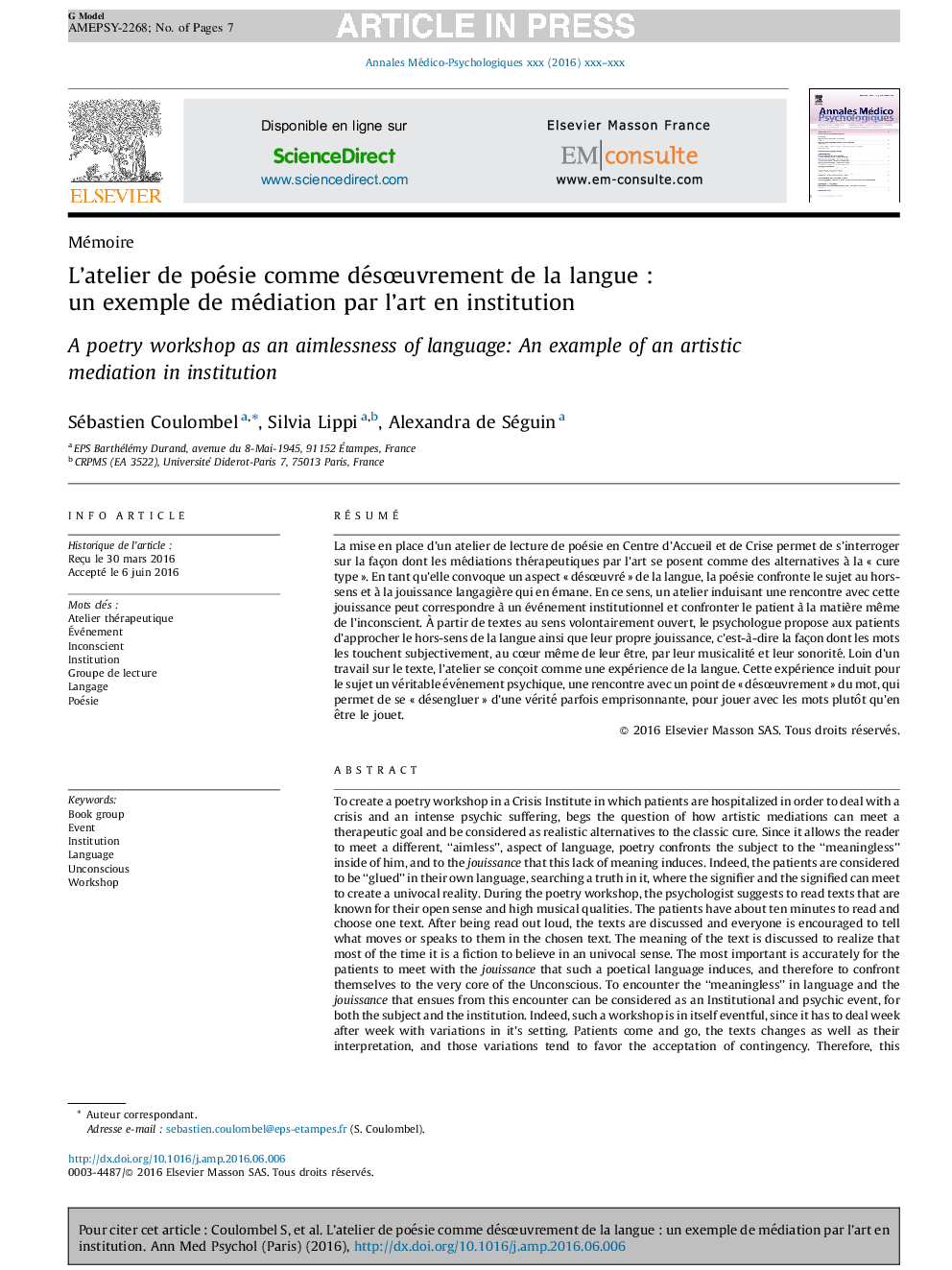| Article ID | Journal | Published Year | Pages | File Type |
|---|---|---|---|---|
| 6785663 | Annales Mdico-psychologiques, revue psychiatrique | 2017 | 7 Pages |
Abstract
To create a poetry workshop in a Crisis Institute in which patients are hospitalized in order to deal with a crisis and an intense psychic suffering, begs the question of how artistic mediations can meet a therapeutic goal and be considered as realistic alternatives to the classic cure. Since it allows the reader to meet a different, “aimless”, aspect of language, poetry confronts the subject to the “meaningless” inside of him, and to the jouissance that this lack of meaning induces. Indeed, the patients are considered to be “glued” in their own language, searching a truth in it, where the signifier and the signified can meet to create a univocal reality. During the poetry workshop, the psychologist suggests to read texts that are known for their open sense and high musical qualities. The patients have about ten minutes to read and choose one text. After being read out loud, the texts are discussed and everyone is encouraged to tell what moves or speaks to them in the chosen text. The meaning of the text is discussed to realize that most of the time it is a fiction to believe in an univocal sense. The most important is accurately for the patients to meet with the jouissance that such a poetical language induces, and therefore to confront themselves to the very core of the Unconscious. To encounter the “meaningless” in language and the jouissance that ensues from this encounter can be considered as an Institutional and psychic event, for both the subject and the institution. Indeed, such a workshop is in itself eventful, since it has to deal week after week with variations in it's setting. Patients come and go, the texts changes as well as their interpretation, and those variations tend to favor the acceptation of contingency. Therefore, this workshop can help building social relations, exchanges and alliances in the group. The fact that poetry deals with jouissance, “aimlessness” of language, and contingency, makes its reading an event in itself, which cuts the subject's temporality, and is fertile through the “meaningless” of the subject's jouissance. The poetry reading workshop presents itself therefore as a way to “unglue” oneself from a closed, truth-telling meaning, to separate signifier and signified, in order to allow the subject to meet with a lively, moving language, the language of the Unconscious. It allows the patient to become through the wordplay, a subject of his words, rather than being played by them.
Related Topics
Health Sciences
Medicine and Dentistry
Psychiatry and Mental Health
Authors
Sébastien Coulombel, Silvia Lippi, Alexandra de Séguin,
